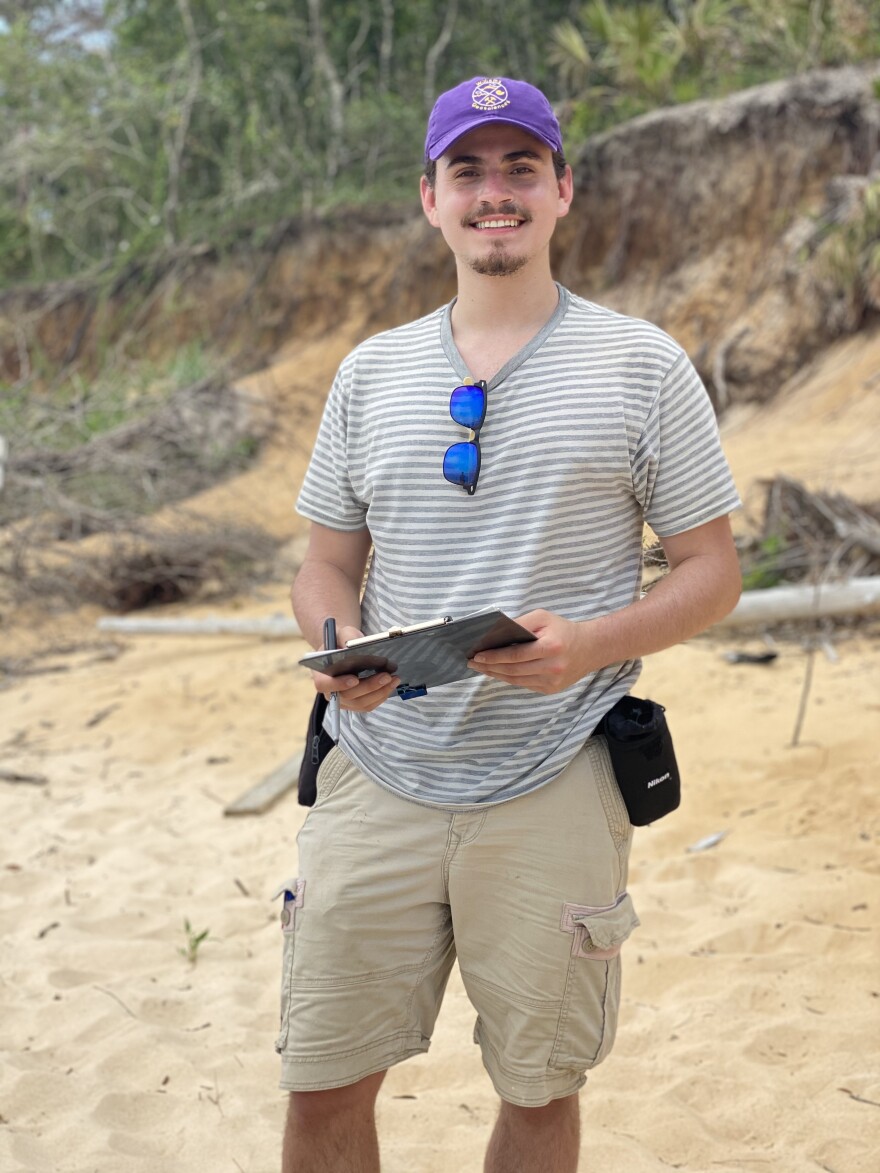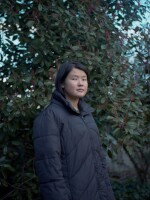The Grand Caillou/Dulac Band of Biloxi-Chitimacha-Choctaw, a Native American tribe in Louisiana that’s deeply involved in coastal restoration efforts and has spent years working to protect their land from land loss and rapidly intensifying storms, has anointed its newest chief.
Devon Parfait, a coastal resilience analyst for the Environmental Defense Fund, stepped into the position in August as the leader of the 1,098-member tribe, located along Grand Caillou/Dulac traditional village where their ancestors settled after being pushed out of Bayou Terrebonne and Bayou Little Caillou due to the influx of European settlers in the 19th century.
A recent graduate of Williams College in Massachusetts, Parfait has spent years studying and advocating for coastal communities that are losing land, such as his own in Louisiana.
Parfait spoke with coastal reporter Kezia Setyawan about his new position, coming home to Louisiana and what his hopes are for the tribe and their disappearing home in an interview that aired on Louisiana Considered.
The following conversation has been edited for clarity and brevity:
Kezia Setyawan: For the Grand Caillou/Dulac Band of Biloxi-Chitimacha-Choctaw, the chief position is hereditarily passed down. Could you tell me about how you grew up into this role?
Devon Parfait: For different tribes, it's different. Some people hold democratic elections, some people pass it down to their families. For our tribe, it's familial.
So I was passed down leadership from my cousin, Shirell Parfait-Dardar. And it's been a position that I've known that I was going to take since I was 12 years old.
I remember having a really long conversation with Shirell, just about all kinds of different things. But eventually, we got to the point where I asked her about the work that she did, and why she did the work that she did and how I could help. She describes in that moment that she felt like, “Hey, maybe this guy could be the next chief.”
I only really learned the true responsibility as I grew older and learned more about the issues facing Louisiana generally, but also specifically tribal communities. And so I always knew who I was going to be, but not exactly how I was going to be it. I knew some kind of education would get me there.
With most of my classes that I took (at Williams), I always tried to do projects in Louisiana. The research that I did was one of the first to quantify how land loss is affecting tribal communities in South Louisiana through satellite imagery. We knew anecdotally that they were disproportionately affected. But we didn't know quantitatively.
Through my time there, I worked to gain whatever experience and knowledge necessary to be able to lead effectively.
Talk to me about your job as a coastal resilience analyst for the Environmental Defense Fund.
It's kind of my dream job. I had been studying coastal issues in Louisiana 1,500 miles away in Williamstown, Massachusetts, and I had applied for so many different jobs and so many different things looking for something environmental.
I came across this job at the Environmental Defense Fund, which works with the Mississippi River Delta Coalition. And I knew that the Mississippi River Delta Coalition had a part in creating the Coastal Master Plan, which historically has not taken in tribal input.
I think there's definitely a lot of room for improvement to implement tribal projects and things that would help keep the land stable for tribal communities. Getting this job was really great because it positioned me in the perfect place to be able to try and make some changes to implement more of those tribal projects and to create a more stable partnership between EDF, the Mississippi River Delta Coalition and the tribal communities as a whole.
In my position, I work as the science coordinator to help support the science projects the organization has ongoing, create agendas and to help host the monthly meetings to see projects move forward, make sure contracts are on their way and more.

How does it feel to be coming home to Louisiana after years of living in the Northeast?
I grew up all over south Louisiana, basically. When I was younger, I used to live right on the Bayou. We had a shrimp boat, and we had a fig tree. We used to be able to fish off the dock and catch crabs. We really just lived off the land down in southern Louisiana.
But then when I was in second grade in 2005, Hurricane Katrina hit, which was devastating for Louisiana, but then Hurricane Rita hit after — that's what got our family’s home. We had to stay away for a really long time. And whenever we came back, everything that was at our house was destroyed. We lost everything that we didn't carry with us. And that started a really long journey in my life of constantly moving around and being displaced. I've lived all around Southern Louisiana.
I had been away for so long (in college and due to the pandemic.)
Being able to come home after five years of being up north, it's just really great. I just love Louisiana. I love the people in Louisiana, it's where I find my cultural connections, as well as familial connections. It's everything to me.
Any goals and future plans for the tribe that you would like to share? Or anything important that wasn’t touched on?
The biggest thing for the tribe right now is trying to build capacity. We have a limited number of people and an unlimited number of projects to put forward and to be done.
So the plan for the tribe is to just kind of do a workshop where we think about what our needs are now. What are our needs going forward? And who do we have? And how do we get more people to help tackle these needs and these goals?
I think the point of organized society is to make sure that people can live comfortably in their homes, be safe in their environment, and not be stricken down just by their economic output. I would urge people to think about the environment that we live in now that is at risk. We're seeing global floods and droughts happen. We're seeing millions of people being displaced from their homes. I think a lot about Pakistan, where one-third of the country is now underwater. There are droughts happening all over the country. And I think it's really a time when we need to start thinking about our environment and the stewardship that we have over our environment. Because it's not just for us, it's for our children.



